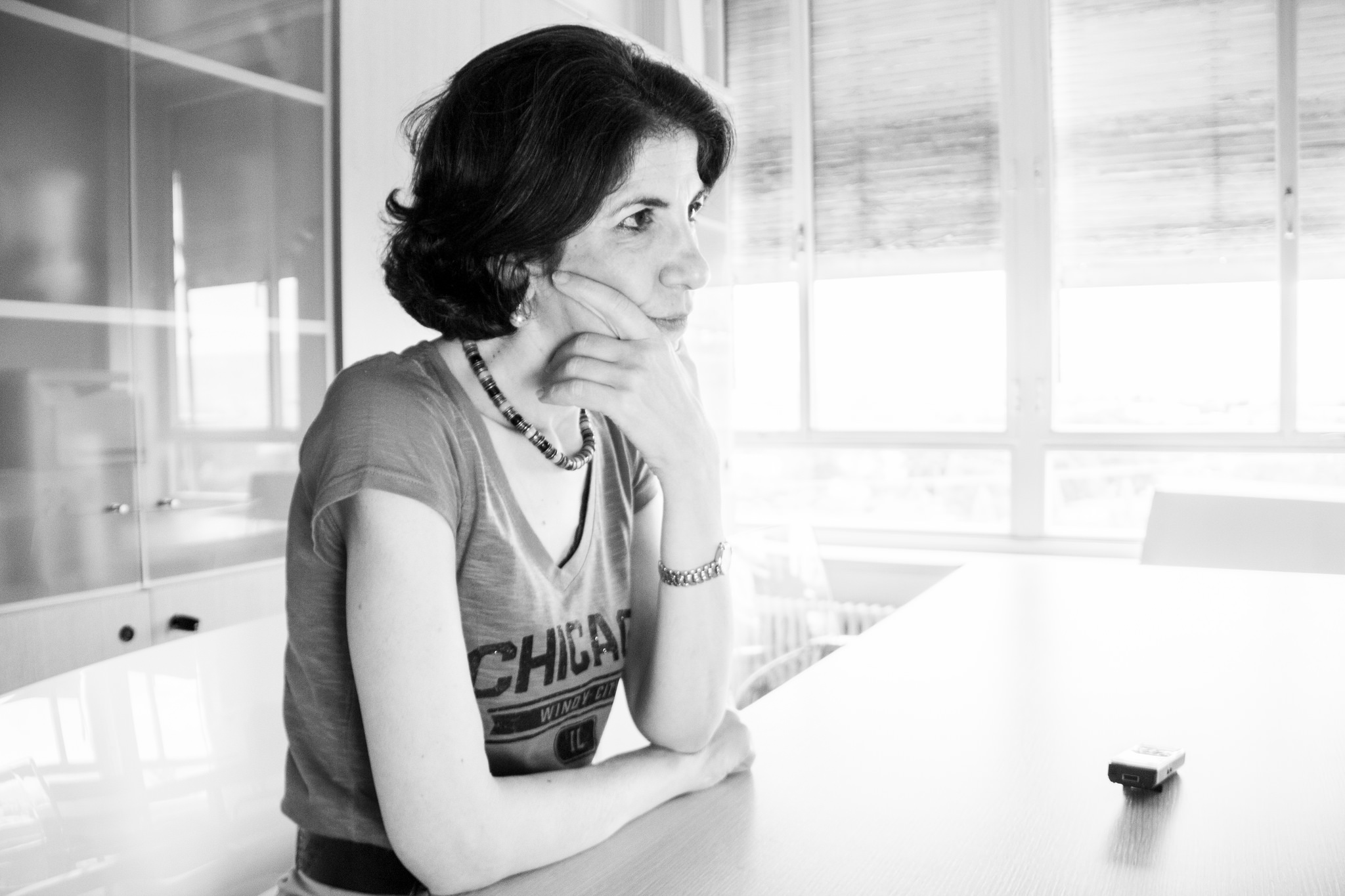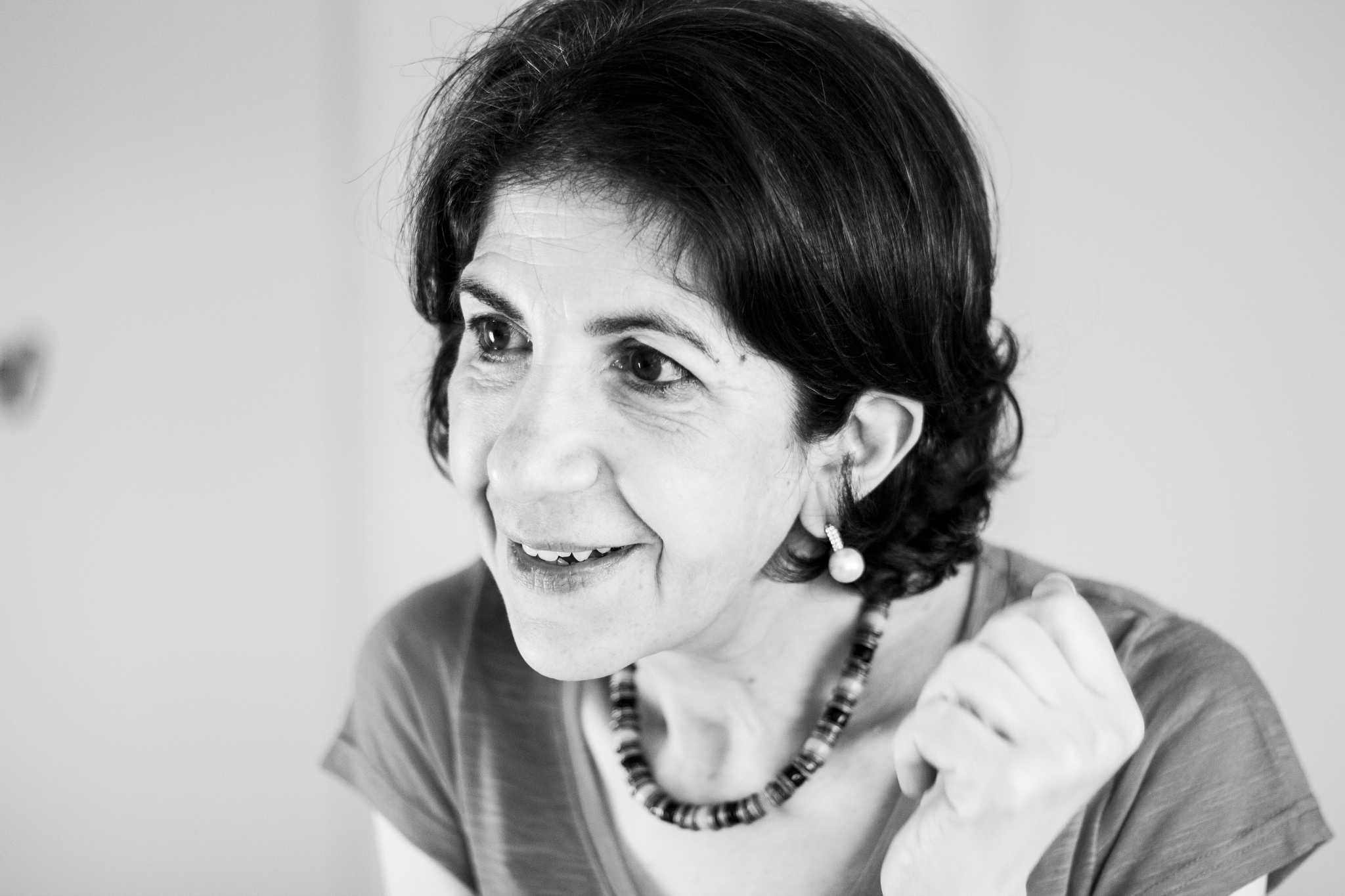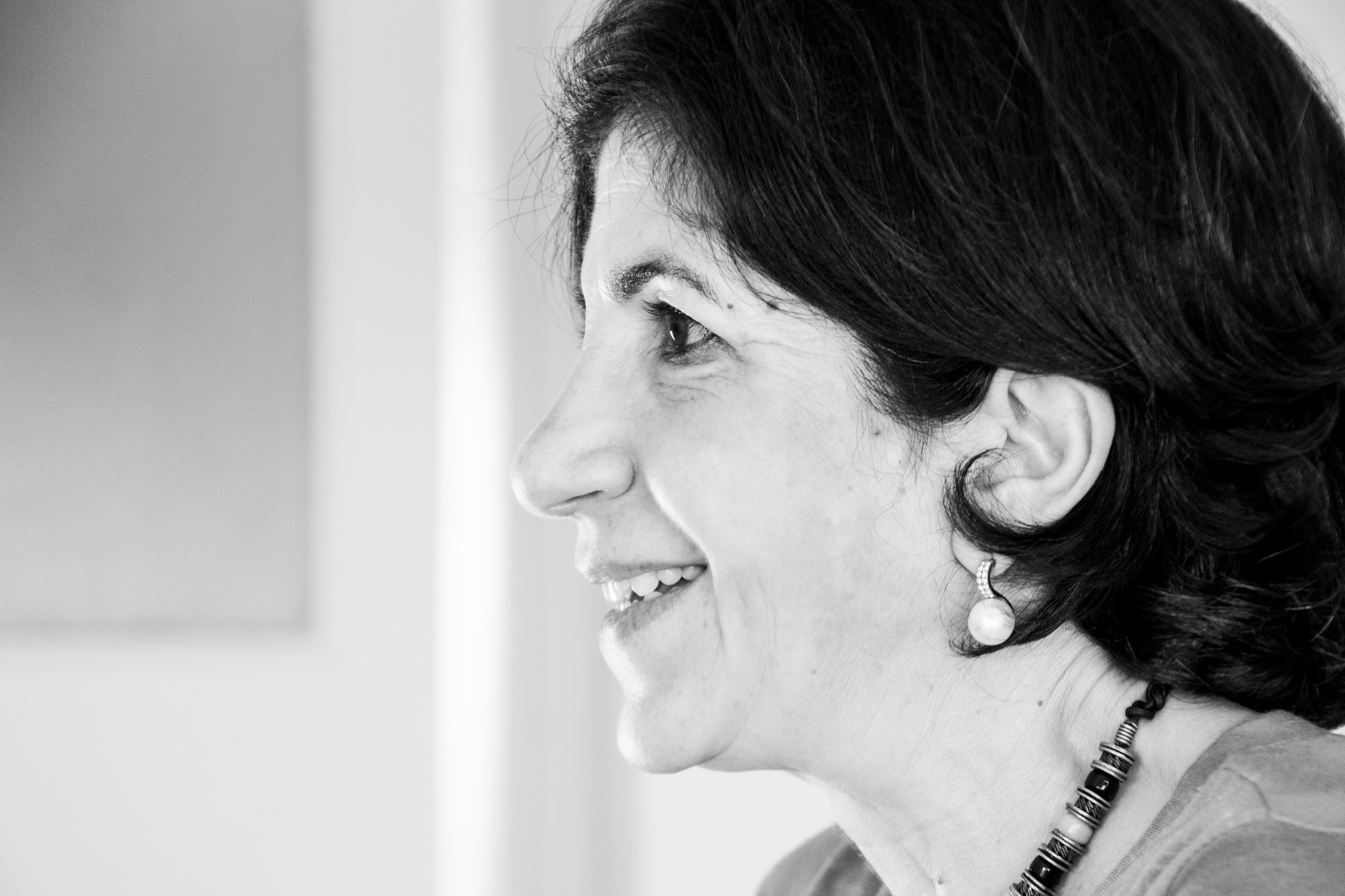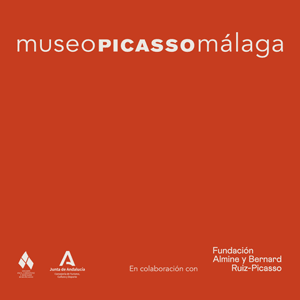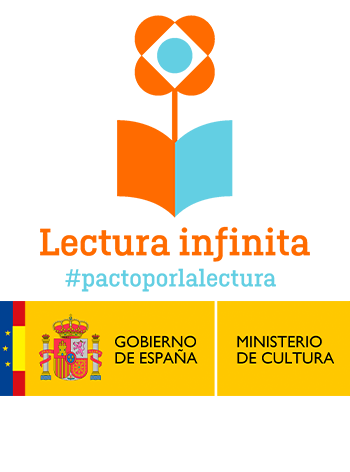Translation: Teresa Galarza
(Versión en castellano aquí)
If we had to describe Fabiola Gianotti in a single word that would be vocation. If we had two, we could add: magnetism. If we were granted a third, it would be, undoubtedly: flair. The first woman to hold the position of coordinator of one of the two major experiments of the LHC (Atlas) and also the first woman to be appointed General Director of CERN lifts her hand of pianist-like long fingers when the interviewer compares her with her great model, Marie Curie. «Do not exaggerate!», she protests, “I am a simple researcher doing what I can”. One imagines exactly the same reaction from Madame Curie herself. An unfeigned modesty that emanates from the soul of a scientist who is passionate about her work.
The discovery of the Higgs boson has been one of the landmarks of modern science and you played a major role in it, as spokesperson of the ATLAS collaboration, one of the two LHC experiments that has found the signal of the Higgs particle. How did you live that crucial moment?
It turns out that today is the 5th anniversary of the announcement of the discovery, which was announced on the 4th of July of 2012. It was one of the most wonderful moments of my life. There is nothing more rewarding and exciting for a scientist than a discovery and the period (full of emotion, hopes and suspense) that leads to it. For months we were seeing the signal of the new particle developing, but for a long time it was inconclusive. We were searching mainly in two channels (Higgs decaying two a pair of photons and Higgs decaying to four charged leptons). At the end of 2011 we had a suggestive but not conclusive signal, then, all along 2012 we developed our blind analysis (a technique in which the physicists analyzing the data blind the region where the signal is expected, to avoid being biased by background or statistical fluctuations). One month before the announcement, the two-photon channel started to develop into a signal, but the four lepton channel was kind of stale, so for a while we were really biting our finger nails in ATLAS, watching the significance of the signal grow so very slowly. Our mood and hopes were changing with the statistical fluctuations. But a couple of weeks before the announcement, the four-lepton channel also started to be populated, thus removing the doubts of even the most conservative of us. And on the 4th of July, ATLAS and CMS announced the discovery of a new Higgs-like particle. And what a particle! The Higgs particle is one of the most essential ingredients of the Standard Model, the proof that we understand something about how the masses of elementary particles are generated. Think about it! The Brout-Englert-Higgs (BEH) mechanism was proposed as a purely mathematical theory, and then this theory predicts the existence of a very special particle, which has been searched for more than 50 years. And we found it. It was a truly magical moment.
There are many scientists who think that the Nobel prize should have been co-shared by the experimentalists who made the discovery…
As far as I know, the Nobel Prize can be given only to individuals, and up to maximum of 3, which is incompatible with giving the prize to the experimental collaborations (each one of them counting several thousand scientists). But I may say that for us the fact that the Nobel Prize was given to Peter Higgs and Francois Englert was just great.
So it was not a big disappointment after all?
Certainly not for me and I think many of my colleagues shared the same feeling. When you discover something, first of all you are very much rewarded by the discovery itself. And then the credit to the experimental work was very clear in the way the Nobel Prize motivation was formulated and also in the public declarations of Peter Higgs and Francois Englert. We were so happy that the ingenious theorists who develop the great ideas behind the BEH mechanism were awarded. Unfortunately, Robert Brout disappeared a few years ago.
So the Higgs have been discovered, but nothing else has shown up. Do you think we are standing in front of a desert? How are we going to cross it?
I’m not so sure there is really a desert in front of us. On the contrary, the situation today is extremely exciting and motivating. We have more and more experimental evidence that there is physics beyond the Standard Model. This evidence comes from very different sources, from the neutrino sector, from the Dark Universe, from unresolved issues in flavor physics (e.g. the number and pattern of the various families of particles). The problem is at which energy shall we find this new physics, and what is the strength of the involved interactions? Perhaps the new particles are very heavy, in which case we need powerful high-energy accelerators to produce them and study their decays, or perhaps they are very light and interact very weakly with ordinary matter (this is the case of neutrinos, and is believed to be the case also of dark matter particles) in which case we would need very intense beams. In a sense it is like searching for a needle in a haystack and we don’t even know which haystack to search. This makes the present times so exciting. Also, there is no single instrument that provides the guarantee to find the new physics. So we have to collect the many experimental approaches that particle and astroparticle physics have been developing for decades and deploy all of them to attack the problem. This includes high-energy accelerators, neutrino experiments, cosmic survey, direct dark matter searches, precision measurement of standard model particles, everything in our hand, really…
So it’s a total attack
Indeed, it is, we have to do a total attack, and the nice thing is that we are in the position to do so, because we have developed the needed approaches technologies over the past decades. It is a fantastic moment. Of course we are all impatient, everybody is impatient but as you know physics requires patience. We will get there!
In parallel we must push the technologies further in all fields. For example, we want more energy from our particle accelerators, but we need to be able to achieve it at an affordable cost and size. So, in addition to incremental progress we will be looking for technological breakthroughs in many sectors. Particle accelerators, telescopes, neutrino and dark matter detectors, you name it. This adds extra interest to our quest. It’s not only finding the new physics, but also inventing new tools, pushing the current technologies to their limits and beyond.
What is your intuition about the next discovery?
Today I am not all that sure. A few years ago I would have said Supersymmetry, simply because the theory is beautiful, an elegant extension of the Standard Model, and would allow to answer many of the outstanding questions at the same time. But supersymmetric particles have not shown up yet and so perhaps the new physics is something else. In any case, nature has always proven to be much more simple, clever and elegant than the theories of physicists trying to describe it. I believe the right approach, at least for us, experimentalists, is to think how to address the questions rather than running behind one theory or another. And if you ask me which question I would like CERN to contribute to solving that would be understanding the nature dark matter. Among other things, it would increase our knowledge of the universe from 5% (today) to 30%. To find the other 70% we need to understand dark matter! These are great, exciting puzzles, which were mostly unknown to scientists a century ago. And we have the chance to try to solve them in our own time!
The physicist Pedro Echenique, speaks often of the sublime usefulness of useless science. So tell us why society should support apparently useless science such as particle physics?
Progress evolves smoothly based on the development and improvement of known technology. However, without new revolutionary ideas and breakthroughs, at some point progress stagnates.
The light that you have at home in the evening, for example, does not come from just building bigger and more efficient candles or even gas lamps, it comes from a breakthrough that happened not quite 150 years ago. The electric bulb was a truly new way to produce light which changed the world. It would not have been possible without fundamental research to understand the basic concepts of electricity. Of course, from the first bulbs of circa 1850 to today’s modern low-power devices, there has been a lot of progress, but of the second type, incremental progress that has improved very much the way we produce electric light but has not changed the essential concepts discovered a century and a half ago.
History shows that usually breakthroughs come from fundamental research. The examples are endless, from penicillin to X-rays and quantum mechanics. And why so? I think because fundamental research is curiosity driven, it has not constraints arising from profit or from delivery of a specific product. So, really the scientists can think widely and broadly because they are free to do so.
However, it is also true that often the breakthroughs that come from fundamental science take decades to show an impact on society. And our accelerated society often has a hard time to accept this. For example, the electric arch, which really demonstrated the principle of the electric bulb dates from 1800, while the tungsten filament which defines the modern bulb was introduced in 1910. This is more than a century! Another pretty example comes from quantum mechanics and relativity. When both theories were developed, they were so far from any practical use that everybody considered them as totally abstract and disconnected from any possible application. However, without quantum mechanics we would not have the modern electronics, computers, the web, all the gadgets that surround us, our iphones, tablets and smart watches. As for relativity, without a precise understanding of the theory, GPS would just not work.
So, will the Higgs find an application to purely practical purposes? We don’t know, and even if it does, it could be decades from now, or more. But think about Faraday’s (purported) reply to William Gladstone (then minister of finance), when asked of the practical value of electricity: “One day sir, you may tax it.”
Connecting with this discussion should CERN invest more on applied science?
CERN actually contributes also to applied science. Our scientific goals are so ambitious, that we need extremely advanced and sophisticated instruments (mainly in three main domains: particle accelerators, particle detectors and computing infrastructure), which in turn require the developments of new technologies in various fields. And those technologies find applications in many domains of society. So, for instance, ultra-high vacuum technology developed at CERN find application in solar panels, and particle detectors and accelerators are used in medical therapy and medical imaging, handling big data is another example, not to mention the WWW. And what we develop is available to everybody for free, because we are a research institution funded with public money. Can you imagine a world in which the web was owned by a private company? And of course we publish in open access journals (available to everybody at no cost), we develop open software and hardware, etc. I believe that our useless science turns out to be quite useful!
The technology transfer that we do is mainly spontaneous. To do more of it and better, CERN has put in place several years ago a dedicated Knowledge Transfer group, aiming at filling the gap between the technologies we develop and products that can be consumed by society.
Sensation is in the rise. Can we do something to help?
I think the best think that we scientists can do is to be extremely rigorous and careful, never selling results that are not solid enough. And explain that science is not only made of sensational discoveries, but mainly of the patient day-by-day work that allows us to make little steps forward in knowledge. But clearly our society is in a hurry and the media want sensational news.
Which we can’t provide every month!
Absolutely! And sometime we just have to let them know that this is it. You cannot have a Higgs discovery every week!
Science is considered by modern society a great miracle medicine capable of fixing all our problems. For example we seem to believe that we can mess with climate change because science will eventually save us. So how can we explain to society that scientists are not shamans and we don’t have the solution for every problem?
It’s a question of being very clear and explaining to people what the experimental method is, the concept of measurement uncertainty and what science can and can’t do. At the same time, we must work hard to provide the data and facts so that politicians can take informed decisions. Scientists must not be passive players, but we cannot be apostles either. We must tread carefully and rigorously. I am not an expert in climatic change, but it seems to me a very good example of a problem where we must be exquisitely balanced.
Moving now on to the ATLAS experiment. How on Earth can you manage to run a team involving 3,000 plus unruly scientists?
I agree it’s a bit of a miracle. Obviously, an experiment like ATLAS needs an organizational and hierarchical structure, otherwise it would not be able to operate effectively. However, the structure must be light, avoiding excessive bureaucracy, because we do scientific research, and research is based on ideas and creativity. In particular, the most creative people are the youngsters and if we have too strict rules or too much bureaucracy, then the young scientists are discouraged and cannot express their creativity and ideas at the best. The other reason why it works so well is that although there is an organizational and hierarchical structure, a collaboration like ATLAS is a real democracy, and I would even dare to say a people’s democracy, meaning that, when we discuss science, we are all on the same level regardless of our nationality, age, seniority, gender, awards, academic status, etc. So, if the youngest student from the poorest country in the experiment has the best idea to solve the problem at hand, she may end up driving the strategy of the experiment. The other bit of magic is passion, passion for physics. In a collaboration like ATLAS everyone loves their work, everyone tries hard and enjoys the ride. That does not exclude problems and frictions, but things have worked much better than one could have predicted, and I believe the reason is that we are all animated by the same passion for physics and we are all pursuing the same goal, and this goal is, I dare to say, higher than our own ambitions.
The title of the recent memoir by Mary K. Gaillard is «A singularly unfeminine profession«. So tell me how Fabiola Gianotti who wanted to study humanities ended up in this most singularly unfeminine profession? What happened?
I have always been a very curious person, and certainly I was a curious kid, I used to ask myself all the big questions! Eventually I read a biography of Marie Curie and found not only a strong role model, but also the enchantment of doing science. And somehow I came to the conclusion that studying physics would allow me to give a little contribution to address and possibly answer some of those big questions. And I never regretted my choice.
One could argue that one of the “raisons d’être” for CERN is that it provides a place with a huge concentration of talent.
Absolutely, it’s one of CERN’s nice features, so many excellent people working together. But I must say that one finds many talents also in the collaborating institutes and laboratories. On a personal note, I had extraordinary teachers when I was studying at the University of Milan. Science allows young people to grow fast because is very democratic. We all work together, we are all on the same level, at CERN you find students and Nobel Prize winners sitting at the same table talking physics.
You are the first woman to be CERN Director-General in 60 years. One would be tempted to say that CERN is a singularly unfeminine place…
I don’t think CERN is a more unfeminine place than the average work environment in other fields of science and technology, where the fraction of women is typically 20 %. This is what you find also at CERN. And when you go up in the hierarchy, you still find a good fraction of women at CERN, so the famous glass ceiling is not lower here than in other places. Of course, I am all in favor of improving the situation, here and elsewhere. We have to do more to attract school girls to science, and we have to do more to avoid the so-called leaking pipe (women leaving the field at some point of their careers because of family or other constraints). Role models are also important to show the younger generations of women that they have the same opportunities as their male colleagues.
You are an accomplished pianist. Do you still have time to play or listen to music?
I listen to music all the time. Music is an essential component of my life and I think my education in music had a strong impact on my scientific career. Music teaches you creativity, rigor and discipline, some of the same virtues you need in scientific research. There are strong links in my opinion between physics and music. We could talk about how music connects with physics and math forever! Unfortunately I don’t have much time for playing these days. Also, I am a perfectionist, and it frustrates me not be as good as I was when I was 20 years old, but all in all, music is always with me.
Is there life for Fabiola Gianotti beyond being CERN Director-General?
I have very limited free time, but I try to use it well. I think it is not good to put your mind only on one thing, and I believe I can be a better physicists and a better CERN Director if I allow myself a bit of indulgence in other interests. So I try to lead a healthy life, doing a bit of sports, music, family, friends … I try to be an accomplished person as much as I can in all aspects.
Do you still have a little bit of time for physics, reading papers, discussing with colleagues, advising students?
I try to read at least some of the relevant papers that appear every month in our field, for instance at the time of the detection of gravitational waves I read a lot of related publications! I also try to attend at least one physics conferences every year. And more than 50% of my time as director general is devoted to the science of the laboratory in terms of following the various projects and experiments, taking strategic scientific decisions, and contributing to prepare the future of CERN.
What will life be after being CERN Director-General? How do you imagine yourself after you quit the job? Are you going to be just a regular physicist again?
Absolutely, Yes!! I will be back to do physics, for instance some data analysis or the development of a detector, and I will be absolutely happy about it. See, what is nice about our field is that we are called to play a given role for some time, in my case director general for 5 years, but because we are primarily scientists, we are happy afterwards to go back to active research.
What do you think about social networks? I know that you have a twitter account but you don’t use it too much…
I don’t use it at all. I think it is there because at some point someone opened a fake twitter account with my name so together with the CERN communication group we decided to open an official account. But I am not a social networks activist. Perhaps I am too old fashioned, but the truth is that I prefer more direct interactions with people.
Is big brother Google watching us? I know that you are also worried about personal data protection.
Yes, personal data protection is becoming more and more important. We have recently put in place an office taking care of data privacy protection at CERN. The personnel needs to know how their private data are used, for how long they are retained, who has access to them.
Marie Curie was your role model, but I would dare to say that you have become a sort of modern Marie Curie…
C’mon! Do not exaggerate! Marie Curie was an outstanding scientist who won two Nobel Prizes and a pioneer in several fields of science, I am a just a regular physicist doing my job seriously, and I am proud of doing it as well as I can, but please no comparison with Marie Curie!
How do you handle the fame?
I’m a bit exposed, it is true. In part because of my current job, in part because of the discovery of the Higgs, and perhaps also because I am a woman in a visible position usually occupied by men. But what we do here is really a collaborative work and it is crucial that we, scientists, regardless of our position and role, share what we do with the media and the general public, because what science belongs to everybody. On a more personal note, if my visibility can be useful to promote the cause of science, I’m happy to accept. But exposure is not something I look forward to. I will be happy to be Fabiola again, when my term is over.
What would be your advice to young woman starting a career in physics today? Would your advice to a young man be different?
The same advice to both. I would tell her or him: If you really like physics go for it! Contributing to advance the knowledge of humanity is one of the most gratifying activities. But be ready to address hard times and challenges, as the path is difficult, be determined, motivated, and strong, and don’t give up easily. Also, be modest, as only by being modest can we give the best of ourselves. In addition, science shows us every day how much we have learned and how much progress humanity has made over the centuries, and at the same time how little we know and how much we still have to learn. So we can be proud of what we have achieved, but at the same time we need to remain modest.



